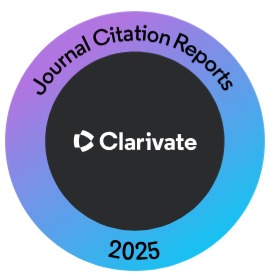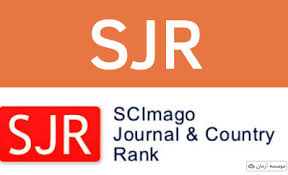Impact of Excessive Screen Time on Speech & Language in Children
Keywords:
screen time, speech delay, effect of screen time, language development, children, negative effect, medica useAbstract
Excessive use of screen time can negatively affect children's development of speech and language as well as other characteristics. Other researches also been conducted on screen time's influence on children's development. In this review, we examine the literature review done nationally and internationally. For this purpose, the researcher used two methods: (1) searches from different databases (Google Scholar, PubMed, Google and Research Gate) and (2) Reference sections of previous studies. The maximum effect of screen time reported in the John JJ study, where 89.4% have excessive screen use. The minimum impact written in a study by Meta Van Den, which showed that only 6.6% of the patient reported speech delays due to media usage. The findings that have been analyzed in this study point to access the strategies to recede the habit of using electronic media in youngsters as it is impacting their speech and language development and causing attention, vision and other health problems. However, more researches are mandatory to
examine several factors that lead to excessive screen time.
References
Karani NF, Sher J, Mophosho M. The influence of screen time on children's language development: A scoping review. South Afr J Commun Disord. 2022; 69(1): 825. doi: 10.4102/sajcd.v69i1.825.
Chong WW, Abd Rahman FN, Harun NA. Screen time of children with speech delay: a cross-sectional study in a tertiary center in Kuantan, Malaysia. Pediatr Int. 2022; 64(1): e15105. doi: 10.1111/ped.15105.
Jalil J, Bashir F. Screen time, effects on cognitive, psychological and physical development of children. Pak Armed Forces Med J. 2021; 71(2): 375-76.
Monteiro R, Fernandes S, Rocha N. What Do Preschool Teachers and Parents Think about the Influence of Screen-Time Exposure on Children's Development? Challenges and Opportunities. Educ Sci. 2022; 12(1): 52. doi: 10.3390/educsci 12010052.
Garth AL. Negative Influence of Screen Time on Speech and Language Development. 2020. 2020 SLP Posters. 3. Available from: https://griffinshare.fontbonne.edu/slp-posters/3.
Krupa M, Boominathan P, Ramanan PV, Sebastian S. Relationship between screen time and mother-child reciprocal interaction in typically developing children and children with autism spectrum disorders. Indian J Pediatr. 2019; 86(4): 394. doi: 10.1007/s12098-018-02844-w. Epub 2019 Jan 9.
van den Heuvel M, Ma J, Borkhoff CM, Koroshegyi C, Dai DW, Parkin PC et al. Mobile media device use is associated with expressive language delay in 18-month-old children. J Dev Behav Pediatr. 2019; 40(2): 99-104. doi: 10.1097/DBP.0000000000000630.
Vrinda R, Reji MM, Sanjeevan SS. Impact of Screen Time on Communication in Toddlers: A Parental Awareness Survey. Language in India. 2021; 21: 42-54.
Madigan S, Browne D, Racine N, Mori C, Tough S. Association between screen time and children's performance on a developmental screening test. JAMA Pediatrics. 2019; 173(3): 244-50.
doi: 10.1001/jamapediatrics.2018.5056.
Zhang Z, Adamo KB, Ogden N, Goldfield GS, Okely AD, Kuzik N et al. Associations between screen time and cognitive development in preschoolers. Paediatr Child Health. 2021; 27(2): 105-10. doi: 10.1093/pch/pxab067.
Fatima M, Akram MM. Relationship between parental negligence, screen time and expressive language delay among young children. Bahria Univ J Human Soc Sci. 2022; 5(1): 45-57.
Hill MM, Gangi D, Miller M, Rafi SM, Ozonoff S. Screen time in 36-month-olds at increased likelihood for ASD and ADHD. Infant Behav Develop. 2020; 61: 101484. doi: 10.1016/j.infbeh. 2020.101484. Epub 2020 Aug 29.
Lissak G. Adverse physiological and psychological effects of screen time on children and adolescents: Literature review and case study. Environ Res. 2018; 164: 149-57.
doi: 10.1016/j.envres.2018.01.015. Epub 2018 Feb 27.
McArthur BA, Tough S, Madigan S. Screen time and developmental and behavioral outcomes for preschool children. Pediatr Res. 2022; 91(6): 1616-21. doi: 10.1038/s41390-01572-w.
McGough K. Pediatric screen time. J Am Assoc Nurse Pract. 2022; 34(4): 631-8. doi: 10.1097/JXX.0000000000000682.
Yang A, Rolls ET, Dong G, Du J, Li Y, Feng J et al. Longer screen time utilization is associated with the polygenic risk for Attention-deficit/hyperactivity disorder with mediation by brain white matter microstructure. EBioMedicine. 2022; 80: 104039. doi: 10.1016/j.ebiom.2022.104039. Epub 2022 May 1.
Suggs K. Help Parents Replace Screen Time With Talking. Leader Live. August 24, 2017. Available from: https://leader.pubs.asha.org/do/10.1044/hold-the-phone/full/
Tamana SK, Ezeugwu V, Chikuma J, Lefebvre DL, Azad MB, Moraes TJ et al. Screen-time is associated with inattention problems in preschoolers: Results from the CHILD birth cohort study. PloS One. 2019; 14(4): e0213995. doi: 10.1371/journal.pone.0213995.
John JJ, Joseph R, David A, Bejoy A, George KV, George L. Association of screen time with parent-reported cognitive delay in preschool children of Kerala, India. BMC Pediatrics. 2021; 21: 1-8.
doi: 10.1186/s12887-021-02545-y.
Maulana MS, Gunardi H. Risk of language delay in toddlers with prolonged screen time: evidence based case repor. J Early Childhood Islamic Education Study. 2020; 1(1): 34-48.
Basit H, Waseem H, Yousaf N. Association between screen timing and delay language development among the toddlers and preschoolers. Asian J Allied Health Sci. 2020; 5(1): 34-9.
Levelink B, van der Vlegel M, Mommers M, Gubbels J, Dompeling E, Feron FJ et al. The longitudinal relationship between screen time, sleep and a diagnosis of attention-deficit/hyperactivity disorder in childhood. J Atten Disord. 2021; 25(14): 2003-13. doi: 10.1177/1087054720 953897.
Sha-sha W, Yuan T, Yu W, Jin-Jin C, Department of Child Healthcare, Shanghai Childrens Hospital. Case-control study on the association between screen time and language delay in children aged 1 to 3 years. Chinese J Child Health Care. 2019; 27(12): 1281-4.
American Academy of Pediatrics. Handheld screen time linked with speech delays in young children, Science Daily. 2017. Available from: https://www.sciencedaily.com/releases/2017/05/170504083141.htm
Kamarudin SS, Dannaee M. Media screen time and speech delay: comparison study in children with and whithout speech delay. 2018; 3(4): 5.
Wu X, Tao S, Zhang S, Zhang Y, Chen K, Yang Y et al. Impact of screen time on mental health problems progression in youth: a 1-year follow-up study. BMJ Open. 2016; 6(11): e011533.
Montagni I, Guichard E, Kurth T. Association of screen time with self-perceived attention problems and hyperactivity levels in French students: a cross-sectional study. BMJ Open. 2016; 6(2): e009089.
Vanderloo LM, Carsley S, Aglipay M, Cost KT, Maguire J, Birken CS. Applying harm reduction principles to address screen time in young children amidst the COVID-19 pandemic. J Dev Behav Pediatr. 2020; 41(5): 335-6. doi: 10.1097/DBP.0000000000000825.
Nobre JNP, Santos JN, Santos LR, Guedes SdC, Pereira L, Costa JM et al. Determining factors in children's screen time in early childhood. Cien Saude Colet. 2021; 26(3): 1127-36. doi: 10.1590/1413-81232021263.00602019. Epub 2019 Jun 12.
Robidoux H, Ellington E, Lauerer J. Screen Time: The impact of digital technology on children and strategies in care. J Psychosoc Nurs Ment Health Serv. 2019; 57(11): 15-20. doi: 10.3928/02793695-20191016-04.
Wiederhold BK. Children's screen time during the COVID-19 pandemic: boundaries and etiquette. Mary Ann Liebert, Inc., publishers 140 Huguenot Street, 3rd Floor New York; 2020. p. 359-60.
Aishworiya R, Kiing JS, Chan YH, Tung SS, Law E. Screen time exposure and sleep among children with developmental disabilities. J Paediatr Child Health. 2018; 54(8): 889-94. doi: 10.1111/jpc.13918. Epub 2018 Apr 19.
Teichert L. Negotiating screen time: a mother's struggle over 'no screen time'with her infant son. J Early Childhood Literacy. 2020; 20(3): 524-50. doi: 10.1177/1468798420926623.
Shafqat F. Screen Addiction Among Young Pakistani Children: Handicapping The Typically Developed. Rehabil J. 2018; 2(01): 38-9. doi: 21-2017/re-trjvol02iss01p38.
Varadarajan S, Venguidesvarane AG, Ramaswamy KN, Rajamohan M, Krupa M, Christadoss SBW. Prevalence of excessive screen time and its association with developmental delay in children aged< 5 years: A population-based cross-sectional study in India. Plos One. 2021; 16(7): e0254102. doi: 10.1371/journal.pone.0254102.
Singh SJ, Mohd Azman FNS, Sharma S, Razak RA. Malaysian parents' perception of how screen time affects their children's language. J Children Media. 2021; 15(4): 588-96. doi: 10.1080/174827 98.2021.1938620.
Straker L, Zabatiero J, Danby S, Thorpe K, Edwards S. Conflicting guidelines on young children's screen time and use of digital technology create policy and practice dilemmas. J Pediatr. 2018; 202: 300-3. doi: 10.1016/j.peds.2018.07.019.
Colley RC, Bushnik T, Langlois K. Exercise and screen time during the COVID-19 pandemic. Health Rep. 2020; 31(6): 3-11. doi: 10.25318/82-003-x202000600001-eng.
Downloads
Published
How to Cite
Issue
Section
License
Copyright (c) 2023 Journal of Liaquat University of Medical & Health Sciences

This work is licensed under a Creative Commons Attribution-NonCommercial-ShareAlike 4.0 International License.
Submission of a manuscript to the journal implies that all authors have read and agreed to the content of the undertaking form or the Terms and Conditions.
When an article is accepted for publication, the author(s) retain the copyright and are required to grant the publisher the right of first publication and other non-exclusive publishing rights to JLUMHS.
Articles published in the Journal of Liaquat University of Medical & health sciences are open access articles under a Creative Commons Attribution-Noncommercial - Share Alike 4.0 License. This license permits use, distribution and reproduction in any medium; provided the original work is properly cited and initial publication in this journal. This is in accordance with the BOAI definition of open access. In addition to that users are allowed to remix, tweak and build upon the work non-commercially as long as appropriate credit is given and the new creations are licensed under the identical terms. Or, in certain cases it can be stated that all articles and content there in are published under creative commons license unless stated otherwise.























